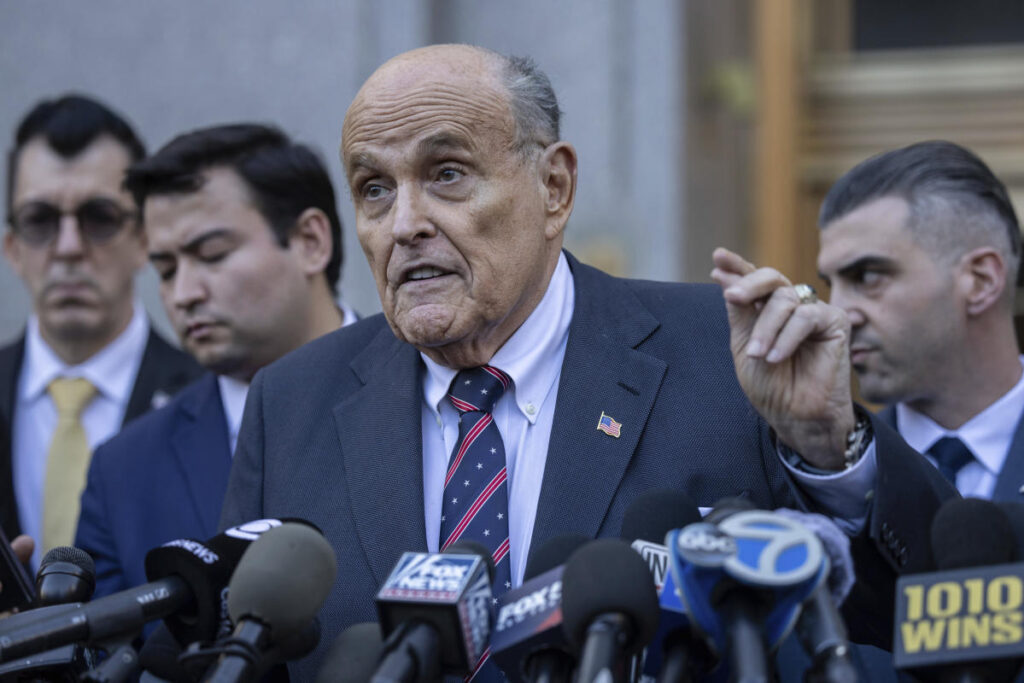Rudy Giuliani, the former New York City mayor and ally of Donald Trump, is embroiled in a significant legal battle concerning a $148 million defamation judgment awarded to two Georgia election workers, Ruby Freeman and her daughter, Wandrea “Shaye” Moss. The souring of his legal representation highlights escalating tensions in his ongoing struggles. Two of his lawyers, Kenneth Caruso and David Labkowski, have requested to withdraw from the case in federal court, citing “fundamental disagreement” with Giuliani’s approach and his failure to cooperate. The timing of their withdrawal request is pivotal, following a court order for Giuliani to hand over valuable assets, including a Mercedes previously owned by actress Lauren Bacall, as part of the punitive measures stemming from the defamation ruling.
The legal issues confronting Giuliani originally stem from his public efforts to invalidate the 2020 election results, during which he made false accusations against Freeman and Moss, claiming they engaged in fraudulent activities. These assertions not only prompted the defamation lawsuit but have also resulted in criminal charges against him in Georgia and Arizona. Last year, the court awarded a substantial judgment to the plaintiffs, who argued that Giuliani’s unfounded claims severely harmed their reputations. Following the ruling, Giuliani attempted to escape his responsibilities by filing for bankruptcy, but his case was dismissed when it was determined that he had not adhered to the legal process.
Giuliani’s lawyers expressed their discontent through a formal filing, suggesting that deteriorating communication and differing legal strategies could no longer maintain their attorney-client relationship. In typical legal practice, a lawyer may seek to withdraw from representation when there are unresolved disagreements or when their client is insistent on pursuing a course of action devoid of legal merit. Notably, details surrounding the reasons for their withdrawal request remain largely undisclosed due to sections of the filing being redacted. Despite this, it’s clear that Giuliani’s reluctance to comply with court mandates regarding the asset turnover has prompted frustration among his legal team.
Giuliani’s apparent defiance against complying with the court’s order is evident, as he has publicly characterized the legal actions taken against him as a “political vendetta.” The defamation ruling against him adds to his growing list of legal troubles, noted to include his disbarment in both New York and Washington, D.C. His combative stance has continued despite looming deadlines for asset recovery, with his resistance underlining a pattern of evasion regarding his financial obligations. He has been seen openly flaunting the order by being spotted in a luxury vehicle that he was obligated to relinquish.
The case against Giuliani highlights broader themes of accountability and the consequences of reckless commentary in public forums, particularly regarding election integrity. His allegations of electoral malfeasance targeted individuals who were simply performing their civic duties, leading to grave reputational harm. This litigation serves as a critical reminder of the potential legal ramifications that public figures may face when they cross the line from advocacy to false claims. In an age of increased scrutiny over electoral processes, the actions of those in influential positions carry weighty implications that extend beyond the courtroom.
As the deadlines loom, it remains uncertain how Giuliani will respond to his lawyers’ withdrawal motion or how he plans to navigate the ongoing legal battles that threaten both his personal and professional establishments. His standing in the legal community, as well as his relationship with former President Trump, may continue to wane if he is unable to mitigate the fallout from these proceedings. Ultimately, this case serves as a stark illustration of how swiftly reputations can be tarnished, emphasizing the critical importance of integrity and accuracy in political discourse.

